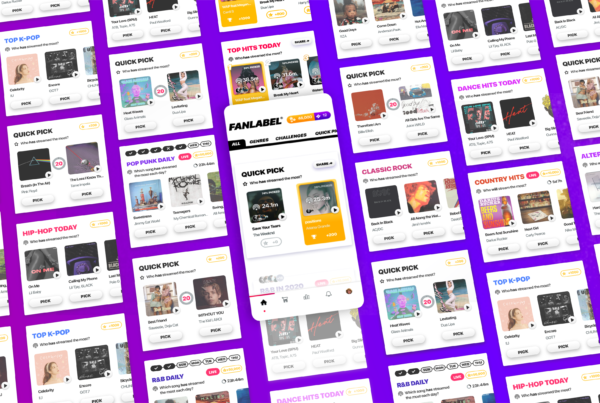The unfortunate reality is that many of our favorite artists leave us too soon. As fans, we develop visceral connections to musicians because of the way their words impact our lives.
But luckily, their music lives on. Sometimes, they even release new music from the beyond. An admittedly morbid result of sudden death in the artistic realm is the posthumous release, which is a piece of art, music or literature that is released after one’s death.
For example: have you read “The Girl With the Dragon Tattoo?” If so, you’ve experienced a posthumous work (the book was published in August 2005, while its author, journalist Stieg Larsson, passed away in November of 2004).
Here at FanLabel, we tend to find posthumous releases something to celebrate, rather than feel creeped out by. It’s a topic that’s often debated for multiple reasons. For one, some believe such a release damages the departed artist’s integrity or reputation. Some also think it’s a scummy way for record companies to cash in on an artist, taking advantage of their talent, fanbase and even surviving family. Others just get the heebie-jeebies due to the overall concept.
Here’s an example: Chris Cornell, singer and songwriter for rock band, Soundgarden, died in a Detroit hotel room in May of 2017. Flash forward to present day, just shy of a year and a half after his death, and a new album, “Chris Cornell,” along with a four-disc box set are prepping for a November 16 release.
The limited-edition box set features 64 tracks, including 11 previously unreleased tracks from his solo work, as well as music recorded with Audioslave, Soundgarden and Temple of the Dog. The release is not only being supported by his wife, Vicky, but campaigned by her, as well.
And while not a posthumous album release, Amy Winehouse is set to go on a live tour in 2019, eight years after her death. Wait, what?
A hologram tour, that is.
Concert goers can expect to hear digitally remastered versions of Winehouse’s hits, including “Rehab” “Back to Black” and “Valerie,” while ticket proceeds will benefit the Amy Winehouse Foundation. Additionally, a biopic film about Winehouse’s life is in the works, with filming to begin in 2019.
As you can see, there are many ways for us to still enjoy our favorite artists in bittersweet new ways, even after they’re gone.
Below are FanLabel’s top 10 picks for posthumous album releases:
“(Sittin’ On) the Dock of the Bay” by Otis Redding, released in January of 1968, Redding died in a plane crash in December of 1967
“An American Prayer” by The Doors, released in November 1978, seven years after lead singer Jim Morrison’s death
“MTV Unplugged in New York” by Nirvana, recorded in November 1993, album was released in November 1994 after Kurt Cobain’s death in April of 1994
“The Don Killuminati: The 7 Day Theory” by Tupac, released in 1996, is one of six studio albums released posthumously
“Life After Death” by The Notorious B.I.G., released in 1997, two weeks after his death
“American V: A Hundred Highways” by Johnny Cash, released in July of 2006, after his death in 2003
“Lioness: Hidden Treasures” by Amy Winehouse, released in December 2011, after her death in July 2011
“Xscape” by Michael Jackson, a compilation of previously unreleased tracks, released in May 2014 after his death in June of 2009
“4Ever” by Prince, a greatest hits album, was released in November of 2016 after his death in April of the same year. “Piano & A Microphone 1983” was later released on Sept. 21, 2018.
“No Plan” by David Bowie, released in January 2017 (on what would have been his 70th birthday), after his death in January of 2016





